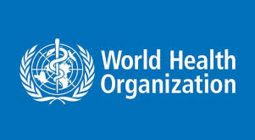The World Health Organization (WHO) has validated the Maldives for eliminating mother-to-child transmission (EMTCT) of hepatitis B, while maintaining its earlier validation (in 2019) for EMTCT of HIV and syphilis.
This makes the Maldives the first country in the world to achieve ‘triple elimination’ a landmark public health achievement
“Maldives has shown that with strong political will and sustained investment in maternal and child health, elimination of mother-to-child transmission of these deadly diseases, and the suffering they bring, is possible,” said Dr. Tedros Adhanom Ghebreyesus, WHO Director-General as stated in WHO press release.
“This historic milestone provides hope and inspiration for countries everywhere working towards the same goal.”
Mother-to-child transmission leads to infections that affect millions worldwide. In the WHO South-East Asia Region alone, provisional estimates indicate that in 2024, more than 23 000 pregnant women had syphilis and over 8000 infants were born with congenital syphilis. About 25 000 HIV-positive pregnant women required treatment to prevent transmission to their babies, while hepatitis B continues to affect more than 42 million people in the Region, it said.
Over years, Maldives has built an integrated and comprehensive approach to maternal and child health. More than 95% of pregnant women receive antenatal care, with nearly universal testing for HIV, syphilis and hepatitis B.
The country also has a strong immunization system, with over 95% of newborns consistently receiving a timely dose of hepatitis B birth dose and full vaccine coverage, protecting infants from lifelong infection. As a result, no babies were born with HIV or syphilis in 2022 and 2023, while a 2023 national survey confirmed zero hepatitis B among young children (first grade of school), surpassing elimination targets.
These achievements are backed by universal health coverage, which guarantees free antenatal care, vaccines and diagnostic services for all residents, including migrants, supported by strong policies and investment of over 10% of GDP in health, it reads.
“This historic validation is a moment of immense pride for the Maldives and a reflection of our nation’s steadfast commitment to protecting mothers, children and future generations,” said H.E Abdulla Nazim Ibrahim, Minister of Health, Maldives. “Achieving triple elimination is not only a milestone for our health sector, but also a pledge by the Government to our people that we will continue to invest in resilient, equitable and high-quality health services that leave no one behind.”
This milestone reflects strong partnerships between government, private health providers, civil society, and international partners, working together on screening, services, outreach, and technical support.
Maldives will continue to strengthen its health system by integrating digital health information, expanding targeted interventions for key populations and migrants, enhancing private sector engagement and reporting and improving laboratory quality management. WHO will support Maldives to ensure sustained elimination efforts to advance progress for broader maternal, child and adolescent health goals.
Meanwhile in another report, one in six laboratory-confirmed bacterial infections causing common infections in people worldwide in 2023 were resistant to antibiotic treatments, according to a new World Health Organization (WHO) report launched today.
Between 2018 and 2023, antibiotic resistance rose in over 40% of the pathogen-antibiotic combinations monitored, with an average annual increase of 5–15%.
Data reported to the WHO Global Antimicrobial Resistance and Use Surveillance System (GLASS) from over 100 countries cautions that increasing resistance to essential antibiotics poses a growing threat to global health.
The new Global antibiotic resistance surveillance report 2025 presents, for the first time, resistance prevalence estimates across 22 antibiotics used to treat infections of the urinary and gastrointestinal tracts, the bloodstream and those used to treat gonorrhoea. The report covers 8 common bacterial pathogens – Acinetobacter spp., Escherichia coli, Klebsiella pneumoniae, Neisseria gonorrhoeae, non-typhoidal Salmonella spp., Shigella spp., Staphylococcus aureus and Streptococcus pneumoniae – each linked to one or more of these infections.
WHO estimates that antibiotic resistance is highest in the WHO South-East Asian and Eastern Mediterranean Regions, where 1 in 3 reported infections were resistant. In the African Region, 1 in 5 infections was resistant. Resistance is also more common and worsening in places where health systems lack capacity to diagnose or treat bacterial pathogens.
The new report notes that drug-resistant Gram-negative bacteria are becoming more dangerous worldwide, with the greatest burden falling on countries least equipped to respond.
Also, the country’s participation in GLASS has increased over four-fold, from 25 countries in 2016 to 104 countries in 2023. However, 48% of countries did not report data to GLASS in 2023 and about half of the reporting countries still lacked the systems to generate reliable data.
In fact, countries facing the largest challenges lacked the surveillance capacity to assess their antimicrobial resistance (AMR) situation.
WHO calls on all countries to report high-quality data on AMR and antimicrobial use to GLASS by 2030.
The report is accompanied by expanded digital content available in the WHO’s GLASS dashboard, which provides global and regional summaries, country profiles based on unadjusted surveillance coverage and AMR data, and detailed information on antimicrobial use.






